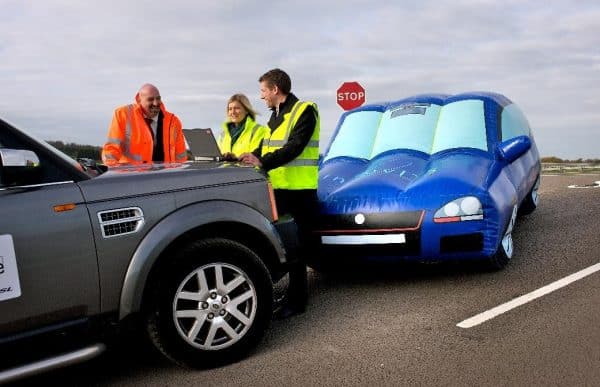
From April 2018 all new vans bought in the UK will come fitted with eCall SOS black boxes which will call the emergency services automatically in an emergency.
This is a new rule from the EU which, they say, will reduce road deaths by 10%.
The SOS boxes, which are already increasingly popular with buyers, will also be fitted to cars.
The EU says that the cost of a van will increase by £90 as result though critics question whether a driver’s privacy will be properly protected.
Known as the ‘eCall’ device, it will automatically operate in an accident to transmit details of the time and location of the crash, as well as the direction of travel.
eCall will boost safety for van drivers and owners
The EU says that telling the emergency services the direction of travel when the crash occurred could be crucial information for accidents in tunnels and on motorways.
Many car and van makers already offer a similar service as part of their options and the move has been welcomed by the European Automobile Manufacturers’ Association.
The association’s secretary general, Erik Jonnaert, said: “The decision will bring us one step closer in having a system we have been proposing since 2004.”
By fitting the SOS boxes, the EU predicts that emergency response times for vehicle accidents will drop by 60% in towns and cities and by 50% in the countryside.
Among those objecting to the implementation of the new system is the UK government which believes that the cost of £370 million to create the network far outweighs the benefits the system may bring.
AA welcomes eCall move to save lives
The Automobile Association says it welcomes the EU’s decision and believes it will save many lives in Europe.
The organisation’s head of roads policy, Paul Watters, said a lot of work will need to be done to ensure the emergency services are ready in time for the new system.
He explained: “The supporting infrastructure needs to be in place to ensure it works and the question is whether the system will automatically dispatch the appropriate emergency service.”
He also highlighted the fact that countries with less congested roads and those where accidents occur in remote areas are more likely to benefit.
He said that the UK has fewer places where someone may be incapacitated in an accident and be undiscovered.
The EU has also made clear that it will assess the eCall service after three years and decide whether it should be installed on trucks, buses and coaches.

